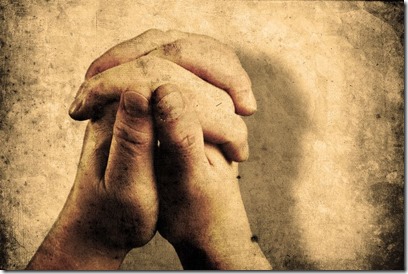 It is almost the Day of Atonement, Yom Kippurim. We have written a few posts on this appointed time before, the most important being the post about what we are to do on Yom Kippurim. We are commanded to afflict our beings on this day, and if you use Scripture to interpret Scripture, clearly we are indeed to fast and repent on this day. Please read the article titled “Fasting on Yom Kippurim“ if you would like to learn more about why we are to fast.
It is almost the Day of Atonement, Yom Kippurim. We have written a few posts on this appointed time before, the most important being the post about what we are to do on Yom Kippurim. We are commanded to afflict our beings on this day, and if you use Scripture to interpret Scripture, clearly we are indeed to fast and repent on this day. Please read the article titled “Fasting on Yom Kippurim“ if you would like to learn more about why we are to fast.
In this post, we would like to focus more on the other part of this day, repentance. We have written about this topic before as well: “Teshuvah…Sin takes us away from YHVH; repentance brings us closer.” Repentance is something we cannot focus too much on because all of us sin. Sometimes we sin consciously, other times unknowingly. We are to search ourselves every day and repent but even more so on this day.
Before we continue, let us first look at the Hebrew word that was translated as atonement. The Hebrew word “kippirum” is derived from the root “kapar” that means “cover.”
ATONE; ATONEMENT [Heb kÄp̱ar—‘cover,’ kippurîm— ‘coverings’]; AV also RECONCILE (Lev. 6:30; 16:20; Ezk. 45:20), RECONCILIATION (Lev. 8:15; Ezk. 45:15, 17; Dnl. 9:24), PURGE (Prov. 16:6; Ezk. 43:20, 26), PUT OFF (Isa. 47:11); NEB EXPIATE, EXPIATION (but “Day of Atonement†in Lev. 23:27; 25:9), also SECURE PARDON (Ex. 32:30), RANSOM (Nu. 31:50), “wipe out†(Prov. 16:6), “master†(Isa. 47:11). To atone is to bring together in mutual agreement, with the added idea, in theology, of reconciliation through the vicarious suffering of one on behalf of another. See also RECONCILIATION; RANSOM.
The English word “atonement†traces its origin to the 16th century. The New Oxford Dictionary indicates that in the first instance it appeared as two separate words “at onement†(cf. Acts 7:26, AV; Gk eis eirḗnēn)1
I like the way the word atonement was used earlier as stated in the New Oxford Dictionary – “at onement.” It is very descriptive. That is what this day is about. It is about coming closer to our Heavenly Father and be “at onement” with Him – in right standing. The feast of Yom Kippur is a day in which we are, as a nation, brought in right standing with YHVH. Repentance is the only way to achieve this.
You probably noticed that we always write Yom Kippurim in the plural form. This is because it is written that way in the Hebrew Scriptures, the translators have decided to translate it into a singular form. Here is a screenshot to show you the Hebrew. Wherever this word “kippurim” is used within the context of this day, it is always written in the plural. Why is that?
Jewish tradition explains the plural by saying it refers to making atonement for the living and the dead and goes further to say that it includes both sins committed against YHVH and sins committed against other people. On this day, we are to repent of both.
Is this scriptural?
It does make sense to me, to a degree, as we are taught in Scripture to repent of both our sins and the sins of our fathers, meaning those who have gone before us. It also makes sense to say we are to ask forgiveness for both sins against YHVH and against other people. However, if you do consider it for a moment, all sin, even sin against a fellow human being is a sin against YHVH. We are commanded to first love YHVH and then our fellow man as ourselves. Sin against another person will be breaking this one great commandment, and we will, thereby, be sinning against YHVH. Sin is the transgression of the law (1 John 3:4).
Could, this word “kippurim,” being plural, perhaps refer to the fact that Yom Kippurim is a national day of repentance? We know that we as individuals are to repent of our sins as we become aware of them, daily or even more often. Have you noticed in Scripture that when the nation turns back to YHVH, they, as a nation, are delivered from whatever or whoever was afflicting them? Why is this so? Could it be that only national repentance can affect change on a national level? I don’t think we can make a hard-and-fast rule about this, but it does make logical sense that when judgment is on a national level, repentance should be too. There are exceptions like when Moses interceded for the people after the golden calf incident(Ex 32:11,30).
However, could it be that a national turning back to YHVH can cause Him to relent from judgment? YHVH uses judgment to turn people back to Him and He will relent if they return to Him in sincerity. This is a well-established pattern throughout Scripture. YHVH, however, is sovereign and He will act according to His will.
Let us search the Scripture to see if it is indeed so.
YHVH could relent from judgment
In the book of Zechariah, YHVH tells the people through the prophet that if they return to Him, He will return to them.
Zechariah 1:3
3 “Therefore say to them, ‘Thus says YHVH of hosts, “Return to Me,†declares YHVH of hosts, “that I may return to you,†says YHVH of hosts.
We have written two articles about this returning. Maybe you want to read it? Just click on the title. “YHVH is calling us to return to Him“ and “If you will not return to me”
Here are three more quotes, two from Jeremiah and one from Joel where YHVH tells the nation that He will relent from judgment if they return to Him.
Please consider this prayerfully as you read this. Is this not what we are, as a nation, to do on this day?
Jeremiah 18:7–8
7 “At one moment I might speak concerning a nation or concerning a kingdom to uproot, to pull down, or to destroy it; 8 if that nation against which I have spoken turns from its evil, I will relent concerning the calamity I planned to bring on it.
Jeremiah 26:2–3
2 “Thus says YHVH, ‘Stand in the court of YHVH’s house, and speak to all the cities of Judah who have come to worship in YHVH’s house all the words that I have commanded you to speak to them. Do not omit a word! 3 ‘Perhaps they will listen and everyone will turn from his evil way, that I may repent of the calamity which I am planning to do to them because of the evil of their deeds.’
Joel 2:12–14
12 “Yet even now,†declares YHVH, “Return to Me with all your heart, And with fasting, weeping and mourning; 13 And rend your heart and not your garments.†Now return to YHVH your Elohim, For He is gracious and compassionate, Slow to anger, abounding in lovingkindness And relenting of evil. 14 Who knows whether He will not turn and relent And leave a blessing behind Him, Even a grain offering and a drink offering For YHVH your Elohim?
The world we live in abound with evil and YHVH does not tolerate evil. It may just be that the measure is not full yet, but how much longer will YHVH remain patient and look upon this evil? We are to turn back to Him, and He will turn back to us. Great judgment is coming, and YHVH starts at His own house, us, His people. This judgment is inevitable, unless we, as a nation, repent!
1 Peter 4:17
17 For it is time for judgment to begin with the household of God; and if it begins with us first, what will be the outcome for those who do not obey the gospel of God?
Where did Peter get this notion from?
Jeremiah 25:29
29 “For behold, I am beginning to work calamity in this city which is called by My name, and shall you be completely free from punishment? You will not be free from punishment; for I am summoning a sword against all the inhabitants of the earth,†declares YHVH of hosts.’
It is written in Ezekiel of a time coming, a terrible time…
Ezekiel 9:5–9
5 But to the others He said in my hearing, “Go through the city after him and strike; do not let your eye have pity and do not spare. 6 “Utterly slay old men, young men, maidens, little children, and women, but do not touch any man on whom is the mark; and you shall start from My sanctuary.†So they started with the elders who were before the temple. 7 And He said to them, “Defile the temple and fill the courts with the slain. Go out!†Thus they went out and struck down the people in the city. 8 As they were striking the people and I alone was left, I fell on my face and cried out saying, “Alas, YHVH Elohim! Are You destroying the whole remnant of Israel by pouring out Your wrath on Jerusalem?†9 Then He said to me, “The iniquity of the house of Israel and Judah is very, very great, and the land is filled with blood and the city is full of perversion; for they say, ‘YHVH has forsaken the land, and YHVH does not see!’
What stands out in this passage is the fact that those with YHVH’S mark will be spared. Who is this? In the article “The Fourth Commandment – Part 2 – Why keep it?” we explain what this seal is. We will not go into more detail here.
These Scriptures prove to us that we still have a chance to repent and return to YHVH, as individuals, but more importantly, as a nation. We want to, again, point you to another article, about how and why we are to repent of our sins but also the sins of our fathers. “What are you proclaiming on Shavuot” I know it’s not Shavuot, but we explain some key concepts in this article, about what the sins of the fathers are.
We are living in a world where iniquity is piled upon iniquity; our sins are heaped upon the unrepented sins of our fathers, and this will continue unless we stop it. The time is now before it is too late. If you would like a good example of a prayer or repentance, you can read Daniel 9:3-19, Nehemiah 1:4-11 and especially Ps 51.
Here is Psalm 51.

A prayer of repentance
Psalm 51 is a very fitting prayer of repentance on this day. What do you think? Read through it and as you pray it, insert we instead of I, then we can pray it together as a nation. (I have added the plural in brackets)
Psalm 51:1–17
1 Be gracious to me (us), O Elohim, according to Your lovingkindness; According to the greatness of Your compassion blot out my(our) transgressions.2 Wash me(us) thoroughly from my(our) iniquity And cleanse me(us) from my(our) sin. 3 For I(we) know my(our) transgressions, And my(our) sin is ever before me(us). 4 Against You, You only, I(we) have sinned And done what is evil in Your sight, So that You are justified when You speak And blameless when You judge. 5 Behold, I was(we were) brought forth in iniquity, And in sin my(our) mother(mothers) conceived me(us). 6 Behold, You desire truth in the innermost being, And in the hidden part You will make me(us) know wisdom.7 Purify me(us) with hyssop, and I(we) shall be clean; Wash me(us), and I(we) shall be whiter than snow. 8 Make me(us) to hear joy and gladness, Let the bones which You have broken rejoice. 9 Hide Your face from my(our) sins And blot out all my(our) iniquities.10 Create in me(us) a clean heart, O Elohim, And renew a steadfast spirit within me(us).11 Do not cast me(us) away from Your presence And do not take Your Holy Spirit from me(us).12 Restore to me(us) the joy of Your salvation And sustain me(us) with a willing spirit.13 Then I(we) will teach transgressors Your ways, And sinners will be converted to You. 14 Deliver me(us) from bloodguiltiness, O Elohim, the Elohim of my(our) salvation; Then my(our) tongue will joyfully sing of Your righteousness. 15 O YHVH, open my(our) lips, That my(our) mouth(s) may declare Your praise. 16 For You do not delight in sacrifice, otherwise I(we) would give it; You are not pleased with burnt offering. 17 The sacrifices of Elohim are a broken spirit; A broken and a contrite heart, O Elohim, You will not despise.
Conclusion
This day of Yom Kippurim is a perpetual day of fasting and repentance, a day to plead for forgiveness and return to YHVH. We want to urge you, to not only, focus on yourself on this day, but on the nation of Israel. YHVH’s people, all of us who are descendants of Abraham either physical or through faith. Judgment is at the door, but we do still have time to return to YHVH and obey Him. Do not just utter empty words, prove your sincerity with your works, your obedience. Obedience should follow repentance!
For those who believe that we should not keep this day because Y’shua became our atonement when He died for our sins and was resurrected. Just remember what the word perpetual means, it means forever. We are to keep this day forever. A friend of mine, Cathi Allen, explained it very well:
Y’shua and Yom Kippurim
Where does Y’shua fit into Yom Kippurim?
Now I want to ask you, if Yahshua’s blood fulfilled the sacrificial requirements for this day, then why do we still have to observe it as a perpetual ordinance with fasting and prayer? At first I was thinking that it was because it has only been partially fulfilled as we are still awaiting the fulfillment of the Azazel goat. But, after much thought and prayer I have come to the conclusion that there is much more to it than that.
I believe we are now to keep this day as a memorial to remember Yahshua’s sacrifice on our behalf. Not only, that, it is also a day where we must humble ourselves and ask ourselves if we are honoring His sacrifice or trampling it under foot (Hebrews 10.7). Since all of us are sinners (Ps 14.3; 53.3; Rom 3.10,12; 1 John 1.10) we then must admit our guilt. We must also look at the body and confess our collective sins, those we do as a nation. We must do this in order to receive YHVH’s gracious pardon. This is how we walk out our faith in humility and honor Yahshua’s sacrifice while being obedient. It is only after this somber experience of inner soul-searching and prayer that we can then truly be grateful and honor Yahshua’s marvelous sacrifice on our behalf.
Thank you, Abba, for giving us this day of Yom Kippur!
Thank you, Abba, for providing us with the sacrifice of Your Son! Praise Yahshua for being the Greatest High Priest of all time!2
References
- Bromiley, G. W. (Ed.). (1979–1988).The International Standard Bible Encyclopedia, Revised. Wm. B. Eerdmans.
- Cathi Allen











Leave a Reply to Timothy Cancel reply